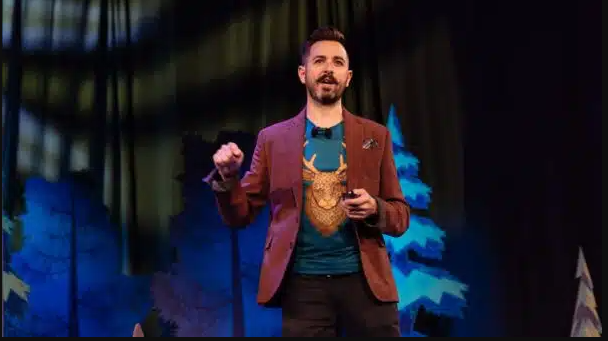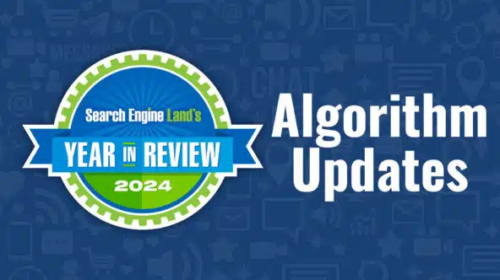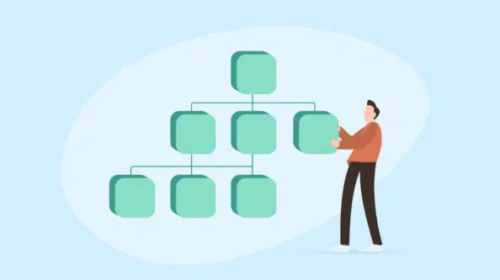Rand Fishkin on the SEO opportunity pie shrinking and more insights
Rand Fishkin shares his thoughts on the importance of creativity, chasing traffic, branded search, social search, and more.
Rand Fishkin published some great new research on how people use Google today. You can read my take on that research in Surprising data: 15% of Google searches are driven by only 148 terms.
I reached out to Fishkin to dig deeper into the implications of his new analysis and some of the insights he shared at BrightonSEO San Diego last month.
Here are highlights from my recent Q&A with Fishkin. Quotes have been lightly edited for brevity.
Most surprising finding. Fishkin’s biggest surprise from the data was the size of the fat head:
- “The immense size of the ‘fat head’ of demand blew my mind. Never would I have guessed that 148 keywords would be responsible for almost 15% of all search volume. I wish I could compare that to years past (and that I’d done this research years ago), but my guess is Google’s query demand, like the rest of our economy, is becoming more and more concentrated at the top.”
Get creative. During his BrightonSEO keynote, Fishkin discussed the future of marketing as “zero-sum” — meaning that to win people’s time or attention, you’ll have to steal it from someone else. We’ve just about reached the peak of everything online.
For example, almost everybody in the U.S. has Internet access now and the amount of time they spend online isn’t growing. Here’s what Fishkin thinks this means for us:
- “I think it means more creativity will yield better results. Many folks in search marketing have been chasing rankings and traffic from the same keywords for a decade or more. Given peak Internet and the zero-sum nature of search traffic, I’d strongly consider if you can win by making more creative content, doing more creative placements, being in sources of influence your competitors have never even tried (*cough* podcasts, email newsletters, direct ad buys, YouTube channels, organic social *cough*).”
Influence vs. clicks. Search marketers are tasked with getting visibility and clicks. However, search is about more than just clicks. Especially now, when 60% of Google searches end without a click.
- “Zero-click organic search is a branding opportunity. If your boss/team/client is pushing you to get traffic, you should push back with data about just how much you can influence an audience on Google results (and how much most companies already pay to get visibility and branding opportunities like that).”
Informational intent. For many years, brands have created informational content with the goal of reaching people at the start of the buying journey. And 52.65% of Google searches are informational, according to Fishkin’s analysis.
Now we’re in the age of AI Overviews, and Google can answer many of those informational queries using generative AI. So, should brands and creators continue creating informational content meant to rank well or is this becoming an outdated tactic? Fishkin’s take:
- “I’m guessing a lot of folks are throwing away time, money, and SEO expertise chasing traffic for terms that are never coming back. But, as marketers always say, ‘it depends!’ Check your results. Don’t just rely on broad studies of hundreds of millions of searches that may not apply to you.”
Peak SEO. Andrew Holland recently wrote about the coming SEO career crisis. And SEO jobs listings were down earlier this year, though anecdotally, that seems to have turned around somewhat in recent weeks.
What does this mean for SEOs? Is it time to reskill or rethink your day-to-day activities (i.e., get away from the SEO checklist mentality)? Here’s what Fishkin had to say:
- “I absolutely agree with you here. The SEO opportunity pie is shrinking, and that likely means we’ve hit peak employment in the sector. If you can expand your skillset to other forms of digital marketing, especially those on the rise (content distribution and creative brand building via other people’s channels are both huge, IMO), I’d lean into that.
- “There will always be a need for talented search marketers, but unless current trends reverse, the number of people needed to run classic, checklist-style SEO for content and technical functions is going to decline, possibly by double-digit percentages.”
Organic traffic vs. revenue. Wil Reynolds wrote about how his organic traffic declined but revenue remained flat. SEO, undoubtedly, still has value for brands of all sizes. But has the value of organic traffic perhaps been “overestimated” or “overvalued”? Fishkin’s thoughts:
- “There’s almost certainly a conflation of organic traffic and revenue, ever since Google took away keyword data on referrals in 2013. My guess is that for many, branded search traffic is sending you way more value than you’re counting and unbranded way less.
- “Also, if you’re treating branded search as something the search marketing team is doing, rather than something your other investments (brand, PR, content, events, social, etc.) are driving to search… you’re likely misallocating a lot of budget.”
Social search. I’ve seen many arguments on LinkedIn about how social search isn’t search (e.g., is TikTok a search engine?). Because when we talk about search, for 20+ years, search has meant Google Search. I was curious for Fishkin’s take on whether the “Google only” focus will need to change:
- “Part of me agrees that a search on TikTok is not the same as a search on Google. But, what about a Pinterest search? How about a SearchGPT query? What about Perplexity or Reddit? It gets muddled.
- “To me, it seems obvious that one way to future-proof your career and limit your brand’s risk of overinvestment in a single channel is to find your customers’ sources of influence and be present in those places in ways that resonate.
- “Stop thinking of SEO as your only hammer and Google rankings your only nail. The world is bigger, and your tactics are eminently portable!”
Build on rented land. You may have heard Fishkin discuss the importance of focusing your efforts on your website and email list for about two decades. Now, he’s convinced he was wrong – that you should build on rented land. Here’s why:
- “When I say ‘build on rented land,’ I’m suggesting that marketers stop thinking about every channel as driving traffic. You’re fighting the platforms every step of the way if you try that approach.
- “Think of digital channels, especially emerging search and social networks (ChatGPT, Perplexity, TikTok, Reddit, YouTube, et al.) like billboards or television. Your job is to capture attention, engage, and do something memorable that will help potential customers think of your brand the next time they have the problem you solve.
- “And that will absolutely help SEO, too (since all that latent awareness and engagement leads to branded Google searches).”
SEO in 2025. I was curious how Fishkin will approach SEO in 2025. Especially in light of his latest research.
- “Funny enough, I don’t think we’ll be changing anything we do at either of my companies around SEO.
- “With SparkToro, we’ve long been of the mind that growing awareness of the product, showing off what it can do, and building a brand with highly shareable content is a better path for us than trying to compete for unbranded keywords that are mostly orthogonal to the business (sadly, almost no one searches for the things we do).
- “With Snackbar Studio it’s the same story. People might search for [indie video games] or [best new games] or even but we’re far better off getting onto the lists the big publications create (e.g. Kotaku’s Best Games of 2026, or similar) than trying to get our own site into those rankings (no player would trust us over an impartial third party anyway, and most video game discovery happens on Steam and YouTube).”
Fishkin also shared one SEO “tip” for 2025 (which he said to take with a grain of salt because he hasn’t been in the SEO field for seven years):
- “Leverage other people’s publications, especially the influential and well-subscribed-to ones. Not only can you piggyback off sites that are likely to already rank well, you get the authority of a third-party saying positive things about you, and, likely, a boost in LLM discoverability (because LLMs often use medium and large publications as the source of their training data).”





